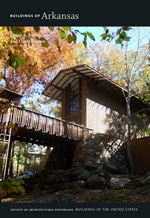Arkansas State University (A-State) has its origins as one of the four agricultural schools the State established in 1909 in response to lobbying by the Arkansas Farmers Union to teach courses in agriculture, horticulture, and textile manufacturing. The State did not legislate for specific locations within the four districts. Jonesboro, centered in a rich agricultural region and with railroad and other transportation, had advantages that tipped the scale in its favor for the northeast district. The school became a junior college in the 1920s, expanded into a four-year institution in the 1930s, and achieved university status in 1967. Although enrollment dropped to a low of 114 during World War II, the college began a steady growth afterward. In recent years the university enhanced its research capacities by becoming a partner institution in the Arkansas Biosciences Institute (CG6.2), and its Heritage Sites program focuses on hands-on learning in the preservation and restoration of the region’s buildings and landscapes. Members of the program have restored such iconic structures as the Hemingway-Pfeiffer Museum and Educational Center (CY1) in Piggott, the Dyess Colony Center (MS10) in Dyess, the Southern Tenant Farmers Museum (PO1) in Tyronza, and Lakeport Plantation (CH5) near Lake Village. The historic sites interpret a full century of heritage, from the plantation economy of the 1830 to the tenant farmers’ movement in the 1930s.
You are here
Arkansas State University (Arkansas State College, First District Agricultural School)
If SAH Archipedia has been useful to you, please consider supporting it.
SAH Archipedia tells the story of the United States through its buildings, landscapes, and cities. This freely available resource empowers the public with authoritative knowledge that deepens their understanding and appreciation of the built environment. But the Society of Architectural Historians, which created SAH Archipedia with University of Virginia Press, needs your support to maintain the high-caliber research, writing, photography, cartography, editing, design, and programming that make SAH Archipedia a trusted online resource available to all who value the history of place, heritage tourism, and learning.


